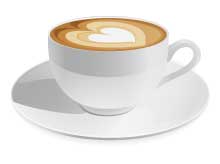In my home we celebrate Chanukah. Like all religious holidays that are thousands of years old, it begins with a germ of historical truth and then, over the centuries, goes through transformations in meaning and traditions. Over the millennia Jews have been persecuted and assimilated, were victims of genocide, learned new languages, and gained education in secular schools. Judaism has evolved and gone through a reformation. The celebration of this holiday has changed as frequently as Jews have moved from one country to another, and from one time to another.
At its core, Chanukah is a story of a beautiful building, the temple in Jerusalem. It was the heart of the Jewish community, a place of worship, education, love and pride. It was destroyed by a king and his armies when the Jews failed to bend to his will, honor his gods and pay his taxes. After much strife and bloodshed, it was reclaimed by the Jews, rebuilt and used once again. Embedded in this story is a tale of a miracle. Jewish temples have an “eternal lamp” that burns sanctified oil. When the Jews reentered their vandalized temple, they had enough of the oil for only one night, but it would take eight days to get more. They lit the lamp anyway, and it burned brightly until more of the sacred oil was brought to the temple. That’s why, it’s said, we light the menorah for eight days.
Chanukah is a rather unimportant holiday, certainly not a holy day, and is only in the limelight because of it’s proximity to Christmas. But, underneath the story told to our children, there is a complex fable. It is one that dwells on the balance between assimilation and religious dogmatism, between the fear of the “other” and the tolerance of diverse society, between the heavy hand of a government, and what a people will tolerate, and between when to act through armies, when to be subversive, and when to give in. It’s about symbols, faith and identity. I think about all of those things at this time of year. I am so grateful to live in this country where I can celebrate how I want, in public, with my family. I am grateful to live at a time when my religious decisions can be personal and not dictated by fundamentalist dogma, or by an oppressive government. I’m grateful to live where where I can walk among others who are celebrating their own holidays.
On Friday I’ll have seventeen people here for a Chanukah dinner. My grandparents came from Russia, and so in a nod to them I’ll have brisket. I’ve bought a large one from my favorite meat purveyor at my local farmer’s market. I might toss in some spices my grandmother would never have used (cumin! harissa!) but it will be a brisket nonetheless. I’ll make potato latkes—frying in oil is a Chanukah tradition. These will be served with homemade applesauce and sour cream. I won’t mess with the basic recipe of shredded potatoes and onions, held together with eggs and bread crumbs, but I will use and be thankful for my food processor. My grandmother used a hand grater. Life changes in many ways! I’m also making a winter squash and chickpea soup (actually traditional fare from Mediterranean Jews) and salad. I’ll make challah, a traditional (well, in the last few hundred years or so) bread. A friend is bringing dessert, but if I find a moment, I’ll make something sweet, too. So, after a couple of thousand years, in my small way and in this small place, Chanukah will continue to be celebrated, with food and family, candles, love and gratitude.
Whatever you celebrate in the next week, I wish you joy and warmth and happiness at your table.



















